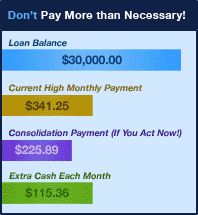 |
| |
 |
Dear Dayana: I'm a recent college grad, just turned 25 and have started a new job at an architectural firm in Michigan. I'd like to buy a new home or condo and am looking for advice on what steps I should take and if this is a good decision for me. I have some student loan debt, but I've consolidated and have a low interest rate and monthly payment. I started a new/better job about six months ago and have already saved about $10,000 for a down payment. I also plan on buying a new vehicle soon (my car now has seen better days). Now what? — Home-less in Minneapolis
Dear Homeless, you're a much savvier 25-year-old than I was. I didn't know my tax rate, thought that a 401(k) was some kind of charity, and subscribed to the "buy now, budget later" method of money management. The biggest purchase I had ever made at that point was some Boston Acoustic speakers. (Not a bad investment, actually, since more than a decade later they're still thumping away, albeit to tamer musical repertoire.)
Home ownership is a great practical, financial, and psychological goal, particularly for someone your age. No matter what stage your hair and waistline, though, the steps for seeing if home ownership is right for you are the same.
Assess your debt. You mention your student loan, which you've wisely consolidated at a low, low interest rate. What about other financial obligations? Do you owe money to Mr. Visa or Ms. MasterCard? If you carry balances forward month-to-month, what's the reason for it? Are you putting necessities like groceries on credit, or are you frittering away funds on stuff you don't really need? Do a little financial soul searching, which leads me to...
Analyze your cash flow. What do you spend your money on? I won't go into a budgeting seminar here (though if you're interested...), but you should at least know what it takes to put food on the table, get yourself to work (in appropriate attire), provide for dependents (if you have any), and add some fulfillment to your life (social activities, decent running shoes). Are you a saver or a spender by nature?
You've managed to save a lot of money in a short period of time for a down payment, which leads me to believe that savings has been a priority in your life. Was it hard to do? Can you keep up that rate of stashing cash? When you're young you can get by with less — roommates instead of a manse of your own; a beater car instead of a minivan. With age comes the desire for more expensive toys, vacations, hair products, and restaurant food. Stay youthful for as long as you can stand it. Your wallet will be happy you avoided the false trappings of adulthood.
Consult the Ouija. Now that you've delved into the recesses of your money psyche, it's time to envision your future — or at least the next three to five years. Do you plan to stay in the area for a while? Are you interested in buying the condo for yourself for a while and then keeping it as a rental property when you decide to move on? The price of selling should be considered when buying since transaction costs can quickly gobble up any gains you've made, particularly if you're forced to sell before you planned.
Don't dismiss renting. No doubt you've heard the admonishments about renting — "You're just flushing money down the toilet," they say, which makes you wonder if they've been rummaging around your septic system. But sometimes renting is the fiscally smarter thing to do. I was a longtime renter because I found an ultra-cheap, ultra-cool apartment which enabled me to invest a large chunk of each paycheck in my retirement accounts, as well as build up a nice cash cushion. When my dream rental scenario ended, I ran the numbers which showed that buying finally made more sense than the new rent (which was nearly double the cost of my old). There are calculators which will help you run the rent v. buy scenarios.
Pore over your credit reports: If buying a home is in the cards, it's time to get the skinny on your financial report card. Lenders consult your credit report to assess the risk of letting you borrow money from them. You're eligible for a free credit report from three of the major credit reporting bureaus every year. Now's the time to take each of them up on their offer. You'll want to start righting any credit wrongs being reported quickly, since the process might take a while.
You might be tempted to get all prettied up for your date with a mortgage broker by beefing up the number of accounts on your statement or getting rid of old lines of credit you don't use. Resist the urge to tinker too much. Any major moves — even seemingly positive ones like lowering your credit limit or canceling old cards — can drag your score down, even if only for the short term. Other things, like paying down some debt, may have a positive impact. MyFico.com sells a FICO Score Simulator which estimates the effect different actions have on your overall FICO credit score. The work you do in the next few months to optimize your credit score will pay off big time when it comes to getting the best interest rate on your loan.
Get pre-approved: With today's competitive housing market, sellers in some hot spots won't even entertain offers from buyers who aren't pre-approved for a mortgage. Getting pre-qualified or pre-approved for a loan is not just good for show, it's also a way to check out a potential lender's service (you don't have to ultimately get your loan with the lender who pre-approved you) and see how they say you stack up in bankers' eyes.
The future of You, Inc.
When you're done nitpicking your finances, emotions, aspirations, and decorating style, it's time to put it all together and come up with a homebuying game plan.
Timing is one important factor, and your debt and credit report will figure largely in your decision about when to buy. For example, if you have some recent negative entries on your credit report (a few 30-day late payment notations) a little distance and good behavior will make that black mark fade. (Here's a guide to how long it will take to clear up those credit blemishes.)
You mention having a chunk of change for the down payment already, but you also say you plan to replace your vehicle soon. Lenders don't like to see a lot of other debt obligations on your report, and a new car loan will definitely limit your mortgage options and handicap your interest rate. Can you use some of the down payment money to pay cash for the car and then replenish your down payment fund? Can the car purchase wait until after you buy a home? Or would you rather put off the home purchase for the time being? Paying some debts now with that down payment money may make more sense over the long term, particularly when it comes to your mortgage interest rate.
Next it's time to shop. You mentioned in a followup note that prices for condos in your ideal neighborhood are insanely expensive, but that you've found an area of the city you like with homes that are within your price range. The hardest part of the whole process is going to be sticking to your guns and not buying a place that will overextend your finances.
Many lenders will tell you that you can afford to spend 33% of your income on housing, including the mortgage principal, interest, taxes, and homeowner's insurance. Lenders will show you creative ways to make your payments more reasonable with products like interest-only and adjustable-rate mortgages and pick-your-own payment options. Click any of those links and you'll get an earful from my colleagues about the dangers of extreme mortgages.
Do the math. Really, do it all. What can you afford to pay to put a roof over your head and keep it at a livable temperature? Pretend like you're paying a mortgage, utilities, homeowner's insurance, and property taxes for a few months and see if you can make it work. No matter what lenders and real estate agents insist you can afford or what they say about other home shoppers in your income bracket stretching to get great digs, stick to your guns. Remember, their job is to get you to buy. In many cases, the more you spend, the more they make. Pick a price range and stick to it.
Or you can do what I did: Buy a house on impulse. But I think the six steps above are probably a better way to approach this important first financial step.
More on shacking up:
This feature may not be reproduced or distributed electronically, in print or otherwise without the written permission of uclick and Universal Press Syndicate.
|
|
 |













 There is now a mad dash to consolidate. Everyone wants to reduce his or her new, higher interest rates--be sure to get in your application now to ensure timely processing.
There is now a mad dash to consolidate. Everyone wants to reduce his or her new, higher interest rates--be sure to get in your application now to ensure timely processing.
